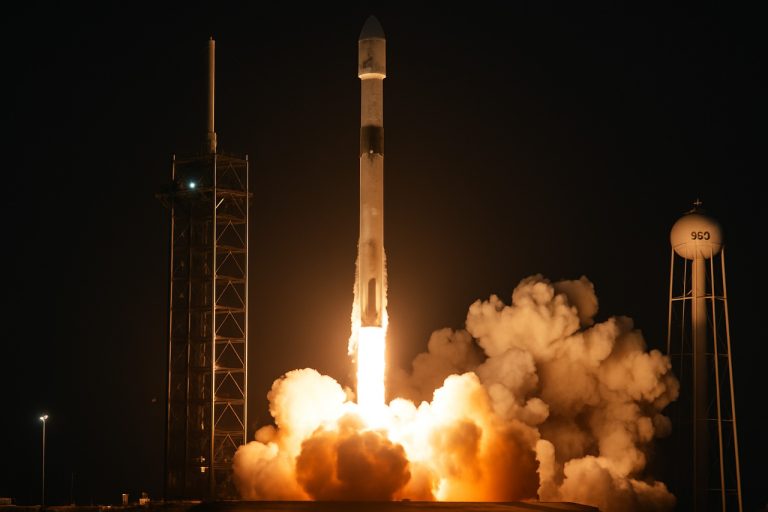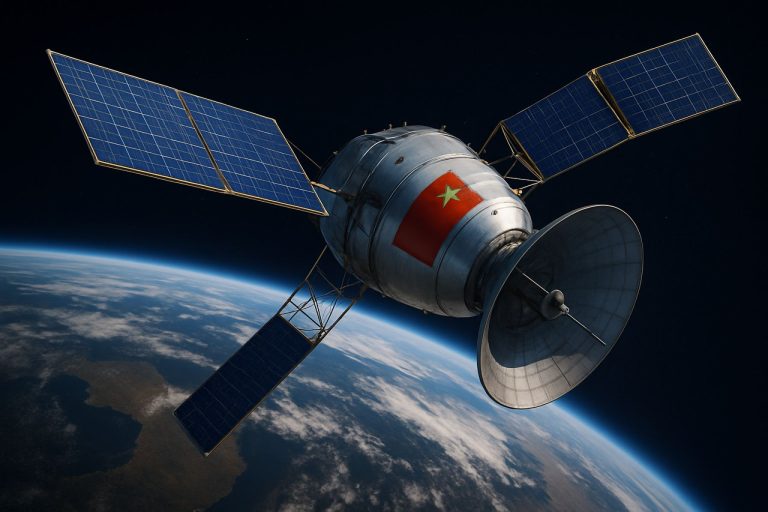
Rocketing Ahead: Unveiling the Global Expansion of Private Spaceflight and Payload Innovators
- Market Overview: The Rise of Private Spaceflight and Payload Enterprises
- Technology Trends: Innovations Powering the New Space Economy
- Competitive Landscape: Key Players and Strategic Moves
- Growth Forecasts: Projected Trajectories in Private Spaceflight
- Regional Analysis: Hotspots and Emerging Markets in Space Ventures
- Future Outlook: What Lies Beyond for Private Spaceflight
- Challenges & Opportunities: Navigating Barriers and Unlocking Potential
- Sources & References
“The once government-only arena of spaceflight is now a thriving global industry fueled by private companies.” (source)
Market Overview: The Rise of Private Spaceflight and Payload Enterprises
The global space industry is undergoing a dramatic transformation, driven by the rapid ascent of private spaceflight and payload enterprises. Once dominated by government agencies, the sector now features a dynamic ecosystem of commercial players competing to launch satellites, cargo, and even humans into orbit. This shift is fueling a new space race, with private companies at the forefront of innovation, cost reduction, and market expansion.
According to Morgan Stanley, the global space economy is projected to reach $1 trillion by 2040, up from $447 billion in 2022. Private investment is a key driver, with venture capital funding for space startups surpassing $8.9 billion in 2023, as reported by SpaceNews. This influx of capital is enabling a new generation of companies to develop reusable rockets, small satellite launchers, and advanced payload technologies.
- SpaceX leads the charge, having completed a record 96 launches in 2023 and capturing over 60% of the global commercial launch market (CNBC).
- Blue Origin and Rocket Lab are expanding their launch capabilities, targeting both orbital and suborbital missions.
- Emerging players in Europe, India, and China are intensifying competition, with companies like ISRO and Galactic Energy making significant strides in commercial launches.
The payload market is also booming, driven by demand for satellite-based communications, Earth observation, and data analytics. The number of satellites launched annually has surged, with over 2,600 satellites deployed in 2023 alone (Statista). This growth is spurring innovation in miniaturized payloads, rideshare missions, and in-orbit servicing.
As private spaceflight and payload companies continue to break barriers, the industry is poised for further expansion. The convergence of lower launch costs, technological advances, and robust investment is propelling the global space sector into a new era—one defined by commercial opportunity, international competition, and unprecedented access to space.
Technology Trends: Innovations Powering the New Space Economy
The global space industry is undergoing a dramatic transformation, fueled by a surge in private investment and technological innovation. The new space race is no longer dominated solely by government agencies; instead, private spaceflight and payload companies are propelling the sector into a new era of commercial opportunity and competition.
According to Morgan Stanley, the global space economy could reach $1 trillion by 2040, up from $447 billion in 2022. This growth is largely attributed to the proliferation of private companies developing reusable rockets, small satellite launch services, and advanced payload technologies.
- Reusable Rockets: SpaceX’s Falcon 9 and Falcon Heavy have revolutionized launch economics by slashing costs through reusability. The company completed a record 96 launches in 2023, carrying both government and commercial payloads (SpaceX Launch Manifest).
- Small Satellite Launchers: Companies like Rocket Lab, Astra, and Firefly Aerospace are targeting the burgeoning small satellite market. Rocket Lab, for example, has completed over 40 launches with its Electron rocket, catering to customers seeking dedicated rides to orbit (Rocket Lab).
- Payload Innovation: Startups such as Planet Labs and Spire Global are deploying constellations of small satellites for Earth observation and data analytics, providing real-time insights for industries from agriculture to insurance (Planet Labs).
- Global Expansion: The private space boom is not limited to the U.S. In China, companies like iSpace and Galactic Energy are developing commercial launch vehicles, while Europe’s Arianespace and India’s Skyroot Aerospace are expanding their commercial offerings (Reuters).
Venture capital is pouring into the sector, with space startups raising over $8.9 billion in 2023 alone (SpaceNews). This influx is accelerating the pace of innovation, lowering barriers to entry, and enabling a new generation of companies to offer services ranging from satellite internet to in-orbit manufacturing.
As private players continue to push technological boundaries, the new space race is set to redefine global connectivity, scientific discovery, and economic growth in the coming decade.
Competitive Landscape: Key Players and Strategic Moves
The global private spaceflight and payload sector is experiencing unprecedented growth, driven by technological innovation, falling launch costs, and surging demand for satellite deployment, space tourism, and interplanetary missions. The competitive landscape is dominated by a handful of pioneering companies, but a vibrant ecosystem of emerging players is rapidly reshaping the industry.
- SpaceX: Elon Musk’s SpaceX remains the market leader, accounting for over 60% of global commercial launch contracts in 2023 (SpaceNews). Its Falcon 9 and Falcon Heavy rockets have set new standards for reusability and cost efficiency, while the Starship program aims to enable deep space missions and mass payload delivery.
- Blue Origin: Backed by Jeff Bezos, Blue Origin is intensifying competition with its New Shepard suborbital flights and the upcoming New Glenn heavy-lift vehicle. The company is also a key player in NASA’s Artemis program, developing lunar landers and infrastructure (NASA).
- Rocket Lab: New Zealand-based Rocket Lab has carved out a niche in small satellite launches with its Electron rocket, completing 10 successful missions in 2023 and expanding into medium-lift with the upcoming Neutron vehicle (Rocket Lab 2023 Review).
- China’s Commercial Space Sector: Companies like LandSpace and Galactic Energy are rapidly scaling up, with LandSpace’s Zhuque-2 becoming the world’s first methane-fueled rocket to reach orbit in 2023 (Reuters).
- Europe’s Response: Arianespace is preparing the Ariane 6 for its maiden flight in 2024, aiming to regain market share lost to SpaceX, while startups like Isar Aerospace and Rocket Factory Augsburg are developing cost-competitive launchers (SpaceNews).
Strategic moves include aggressive price competition, rapid innovation in reusable launch systems, and vertical integration—such as SpaceX’s Starlink satellite constellation. Partnerships with government agencies and commercial satellite operators are also intensifying, as companies vie for lucrative contracts and position themselves for the next phase of the space economy.
Growth Forecasts: Projected Trajectories in Private Spaceflight
The global private spaceflight sector is experiencing unprecedented growth, fueled by technological innovation, increased investment, and a surge in demand for satellite launches and space-based services. According to Morgan Stanley, the global space industry could generate revenues of over $1 trillion by 2040, with private companies playing a pivotal role in this expansion. The commercial launch market, once dominated by government agencies, is now led by private players such as SpaceX, Blue Origin, and Rocket Lab, who are driving down costs and increasing launch frequency.
SpaceX, for example, completed a record 96 launches in 2023, up from 61 in 2022, and aims for over 140 launches in 2024 (CNBC). This rapid cadence is mirrored by other companies: Rocket Lab has expanded its launch manifest and is developing its Neutron rocket to compete for larger payloads (Rocket Lab). Meanwhile, Blue Origin is preparing for the first orbital flight of its New Glenn rocket, targeting both commercial and government contracts (Blue Origin).
Beyond launch services, the payload market is booming. The number of satellites launched annually has skyrocketed, with over 2,600 satellites sent to orbit in 2023 alone (SpaceNews). This growth is driven by the proliferation of small satellite constellations for broadband internet, Earth observation, and IoT applications. Companies like OneWeb, Amazon’s Project Kuiper, and SpaceX’s Starlink are leading the charge, with thousands of satellites planned for deployment in the coming years.
Emerging markets in Asia, the Middle East, and South America are also contributing to the sector’s dynamism. India’s private space sector, for instance, is projected to reach $13 billion by 2025 (Mint), with startups like Skyroot and Agnikul making significant strides.
As competition intensifies and new entrants emerge, the private spaceflight and payload industry is set for robust growth, reshaping the global space economy and accelerating humanity’s access to space.
Regional Analysis: Hotspots and Emerging Markets in Space Ventures
The global landscape of private spaceflight and payload companies is experiencing unprecedented growth, with new regional hotspots and emerging markets reshaping the industry. The surge is driven by technological advancements, decreasing launch costs, and increased government and private sector investment. As of 2023, the global space economy reached an estimated $546 billion, with commercial space activities accounting for over 77% of the total, according to Space Foundation.
- United States: The U.S. remains the epicenter of private spaceflight, home to industry leaders like SpaceX, Blue Origin, and Rocket Lab. SpaceX alone conducted 96 launches in 2023, capturing a significant share of the global commercial launch market (SpaceNews). The U.S. government’s support, through NASA’s Commercial Crew and Artemis programs, continues to fuel innovation and investment.
- China: China’s private space sector is rapidly expanding, with companies such as iSpace, Galactic Energy, and LandSpace making significant strides. In 2023, China conducted 67 orbital launches, many involving commercial payloads (NASASpaceFlight). The government’s “civil-military fusion” policy and growing venture capital interest are accelerating the sector’s growth.
- Europe: Europe is consolidating its position with established players like Arianespace and emerging startups such as Isar Aerospace and Rocket Factory Augsburg. The European Space Agency’s (ESA) new funding initiatives and the rise of small satellite launchers are fostering a competitive environment (ESA).
- India: India is an emerging hotspot, with the Indian Space Research Organisation (ISRO) and private firms like Skyroot Aerospace and Agnikul Cosmos leading the charge. The government’s recent policy reforms and successful private launches are attracting global attention (Reuters).
- Middle East and Africa: The UAE’s Mars mission and Saudi Arabia’s investments in satellite technology signal the region’s growing ambitions. Africa is also seeing nascent activity, with Nigeria and South Africa investing in satellite and launch capabilities (SpaceNews).
As competition intensifies, these regional hotspots and emerging markets are set to redefine the global space economy, driving innovation and expanding access to space for commercial and scientific purposes.
Future Outlook: What Lies Beyond for Private Spaceflight
The private spaceflight sector is experiencing unprecedented growth, marking the dawn of a new space race driven by commercial innovation and international competition. As government agencies like NASA and ESA increasingly partner with private firms, the global market for space launches, satellite deployment, and in-orbit services is booming. According to Morgan Stanley, the global space industry could generate revenues exceeding $1 trillion by 2040, up from $350 billion in 2023.
Key players such as SpaceX, Blue Origin, and Rocket Lab are leading the charge, offering frequent and cost-effective launches for commercial, scientific, and governmental payloads. SpaceX’s Falcon 9, for example, completed a record 61 launches in 2022, and the company aims to further increase its cadence with the development of Starship, a fully reusable heavy-lift vehicle (CNBC).
Meanwhile, new entrants from Europe, Asia, and the Middle East are intensifying competition. Companies like ispace (Japan), Arianespace (France), and GK Launch Services (Russia) are expanding their launch offerings, while China’s LandSpace and Galactic Energy are rapidly developing reusable rocket technology (SpaceNews).
Beyond launches, the payload market is diversifying. Demand for small satellite constellations, in-orbit servicing, and space tourism is surging. The Satellite Industry Association reports that commercial satellite revenues reached $281 billion in 2022, with growth driven by broadband, Earth observation, and IoT applications.
Looking ahead, the future of private spaceflight will be shaped by further cost reductions, reusable launch systems, and new business models such as on-orbit manufacturing and lunar resource extraction. As regulatory frameworks evolve and investment pours in, the global boom in private spaceflight and payload companies is set to accelerate, ushering in a new era of space commercialization and exploration.
Challenges & Opportunities: Navigating Barriers and Unlocking Potential
The global private spaceflight sector is experiencing unprecedented growth, driven by technological innovation, falling launch costs, and surging demand for satellite deployment and space-based services. However, this boom is accompanied by significant challenges and transformative opportunities for both established players and new entrants.
- Barriers to Entry: Despite the proliferation of startups, the capital-intensive nature of spaceflight remains a formidable barrier. Launching a small satellite can cost between $1 million and $10 million, while developing a new launch vehicle can require investments exceeding $500 million (SpaceNews). Regulatory hurdles, such as export controls and spectrum allocation, further complicate market entry, especially for companies operating across multiple jurisdictions.
- Market Opportunities: The global space economy is projected to reach $1 trillion by 2040, up from $469 billion in 2021 (Morgan Stanley). Key growth drivers include the expansion of satellite broadband, Earth observation, and in-orbit servicing. Companies like SpaceX, Rocket Lab, and Arianespace are capitalizing on the demand for frequent, reliable, and cost-effective launches, while new entrants are targeting niche markets such as small satellite deployment and lunar logistics.
- Technological Innovation: Reusable rocket technology, pioneered by SpaceX’s Falcon 9, has slashed launch costs by up to 40% (CNBC). This has democratized access to space, enabling smaller companies and nations to participate in the new space race. Advances in miniaturization and propulsion are also fueling the proliferation of small satellites, with over 2,500 launched in 2023 alone (Euroconsult).
- Regulatory and Sustainability Challenges: The rapid increase in launches has raised concerns about orbital debris and space traffic management. International efforts, such as the United Nations’ guidelines on space debris mitigation, are underway, but enforcement remains inconsistent (UNOOSA). Companies that develop solutions for debris removal and sustainable operations stand to gain a competitive edge.
In summary, while the private spaceflight and payload sector faces significant financial, regulatory, and technical barriers, the opportunities for growth and innovation are vast. Companies that can navigate these challenges are poised to shape the future of the global space economy.
Sources & References
- Rocketing into the New Space Race: Inside the Global Boom of Private Spaceflight and Payload Companies
- Morgan Stanley
- SpaceNews
- CNBC
- ISRO
- Galactic Energy
- Statista
- Planet Labs
- Blue Origin
- NASA
- LandSpace
- Arianespace
- Mint
- NASASpaceFlight
- ESA
- ispace
- Satellite Industry Association
- Euroconsult
- UNOOSA



